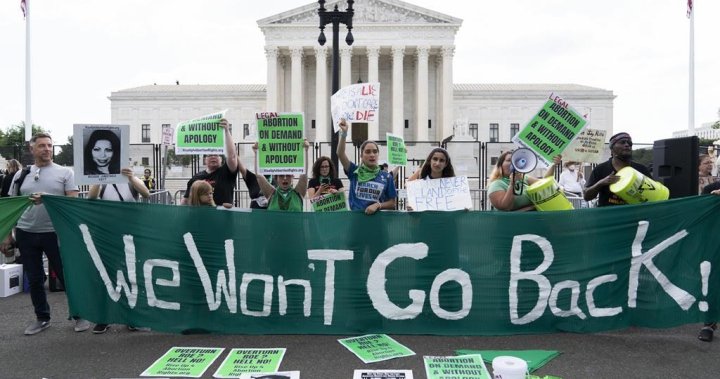
States move quickly to ban abortion after Roe v. Wade. Here’s what access will look like
Global News
Thirteen states have so-called 'trigger laws' on the books that were written to go into effect as soon as the landmark precedent fell.
Several states across the U.S. moved quickly to ban abortion Friday in the hours after the Supreme Court voted to overturn the legal right to access established by Roe v. Wade.
Thirteen states have so-called “trigger laws” on the books that were written to go into effect as soon as the landmark precedent fell. Some of those states wasted no time ensuring those bans were in place after Friday’s ruling.
Pregnant women considering abortions already had been dealing with a near-complete ban in Oklahoma and a prohibition after roughly six weeks in Texas. Clinics in at least five other states — Alabama, Kentucky, Missouri, Wisconsin and West Virginia — stopped performing abortions after Friday’s decision.
Here’s a look at which states have moved to ban abortion following the court ruling.
States that have trigger laws in place — including Texas, Oklahoma, Kentucky, the Dakotas and Idaho — require their attorneys general to sign off on enforcing the bans.
Louisiana Attorney General Jeff Landry confirmed shortly after the Supreme Court’s decision that his state’s trigger law banning all abortion is now in effect.
Oklahoma began the process of invoking its trigger law Friday, and other states, including Kentucky, Ohio and West Virginia, said they were beginning work on trigger bans.
Only some of those laws make exceptions for rape and incest, while most say they will allow abortions only if the mother’s life is at stake if they try to give birth.











